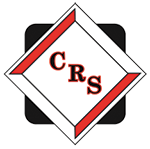Hospitals keep a huge amount of data as records, and sometimes, it could be easier to manage the data. Imagine a world where mountains of medical records transform into a treasure trove of insights. This is the power of clinical data abstraction, a process that unlocks the secrets hidden within patient charts. But what exactly is it, and why is it so crucial in today’s healthcare landscape?

Why We Need Clinical Data Abstraction
Hospitals and clinics generate a staggering amount of information every day. Patient charts, doctor’s notes, radiology reports, and lab results are a constant flow of data. However, this data is often raw and unorganized, like a messy collection of puzzle pieces with missing parts. Analyzing it directly would be time-consuming and error-prone.
This is where clinical registry abstraction specialists step in. They act as the bridge between raw data and usable information. They carefully review medical records. They use their expertise to extract specific details based on pre-defined criteria. The criteria can vary. They depend on the research question or quality improvement initiative. But Clinical registry abstraction often includes:
- Demographics: Patient age, gender, ethnicity, zip code (used with caution to protect privacy).
- Medical history: Past diagnoses, surgeries, and chronic conditions.
- Social determinants of health are factors like income, education, and access to healthy food. They can impact health.
- Presenting complaints: The patient’s symptoms and reasons for seeking medical attention.
- Physical examination findings: The doctor’s physical exam results, such as blood pressure, heart rate, and lung sounds.
- Diagnostic tests: Results of X-rays, blood tests, biopsies, and other diagnostic procedures.
- Treatments administered: Medications prescribed, procedures performed, and any surgeries conducted.
- Patient outcomes include how the patient responded to treatment, whether they went home or were transferred, and any readmissions within a specific time period.
Clinical registry abstraction specialists need to read more than each medical record line by line. They actively analyze the information, identifying key details and translating them into a standardized format.
The Benefits of Unlocking Medical Mysteries
So, why is this process so important? Abstracting clinical data unlocks a treasure chest of benefits. It helps patients, researchers, and the healthcare system as a whole.
- Better Patient Care: By studying trends in abstracted data, researchers can find patterns. They can use these patterns to make new treatment strategies or improve existing ones. This can lead to more effective care for patients with specific conditions, such as diabetes or heart disease.
- Enhanced Research & Development: Abstracted data fuels medical research. It allows researchers to compare data across different institutions, track disease progression over time in large patient populations, and test the effectiveness of new medications in clinical trials.
- Boosts efficiency and cost savings: It comes from identifying patterns in healthcare use through abstracted data. It lets hospitals and clinics use resources better and cut unnecessary procedures.
- Quality Assurance & Monitoring: Abstracted data helps groups watch care quality. This allows them to identify areas for improvement and ensure patients receive the best possible treatment.
The Art & Science of Clinical Data Abstraction
Clinical data abstraction is a blend of art and science. Here’s a deeper dive into the process:
- Understanding the Source Material is key. Data abstraction specialists need to know medical terms and coding systems well. They must know many kinds of medical records. These include electronic health records (EHRs) and paper charts. They must know how to navigate them well.
- Extracting the Essentials: Abstraction specialists go beyond simply reading medical records. They actively analyze the information, identifying key details according to pre-defined criteria. This requires critical thinking and strong attention to detail.
- The next step is to apply the code. First, we identify the essential details. Then, we translate them into codes using systems like ICD-10 for diagnoses and CPT for procedures.
- Accuracy is Key: Even minor errors in data abstraction can have significant consequences. For example, if a patient’s diagnosis is coded incorrectly, they might not receive adequate treatment, or their insurance might deny coverage. Abstraction specialists have strict training and use careful quality control measures. These steps ensure the accuracy and completeness of the abstracted data.
The Future of Healthcare: Powered by Data
Clinical data abstraction is the cornerstone of evidence-based medicine. It empowers healthcare professionals. They can make informed choices based on real-world data, not just intuition or tradition. Healthcare is always changing, and data abstraction will continue to play a bigger role in it.
- Personalized Medicine: By analyzing individual patient data, doctors can tailor treatments to a patient’s specific needs and genetic makeup. Imagine a future where doctors can use abstracted data. They can use it to find the best drugs for a patient. The choice is based on the patient’s genes and past medical history.
- Precision Public Health: Abstracted data can help public health officials identify and address emerging health threats more effectively. For instance, during a disease outbreak, data from hospitals and clinics can be used to track the spread of the disease in real time. This lets public health officials better target interventions and allocate resources.
- The healthcare system is shifting towards value-based care. Providers are rewarded for quality care and better patient outcomes, not for the volume of services. Data can help track patient outcomes and identify areas for improvement. This helps healthcare systems deliver cost-effective, high-quality care.
Conclusion
Clinical data abstraction may seem like a complex process behind the scenes, but its impact is undeniable. It’s an unseen force. It turns piles of medical records into a powerful tool. The tool improves patient care and advances medical research. In the end, it shapes a healthier future for all. Data powers progress in medicine. It paves the way for the future. In the future, treatments will be more personalized. Public health threats will be addressed better. Healthcare resources will be used better.
Giving accurate results is Cardiac Registry Support’s top priority. They provide continuous training to keep abstractors up-to-date.


